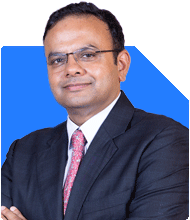I had invested in Sbi equity hybrid fund regular growth and direct growth is it good to continue
Ans: You have made a thoughtful choice by investing in a hybrid mutual fund. This shows your awareness about balancing growth and safety. Many investors stay only with savings or insurance-based products. But you have chosen a disciplined market-linked route. That deserves appreciation. It also shows that you value long-term wealth creation through professional fund management.
» Understanding the Nature of a Hybrid Fund
A hybrid mutual fund mixes both equity and debt in one portfolio. It gives exposure to stock market growth and some stability from debt. This type of fund is suitable for investors who want moderate risk and steady returns. It aims to give growth like equity and safety like debt.
The proportion of equity and debt is managed by professionals. They rebalance based on market outlook. So, you don’t need to do timing or frequent monitoring.
» Purpose Behind Choosing a Hybrid Fund
Usually, hybrid funds are chosen for medium to long-term goals. They suit investors who want better returns than fixed deposits but with lesser risk than pure equity. They also help in building wealth gradually.
If your goal is long-term wealth creation or retirement corpus, then this category is right. If your goal is short-term, then this fund may fluctuate more than expected.
» Regular Plan vs Direct Plan — Key Evaluation
You have both regular and direct plans of the same fund. This is a very common situation. Many investors try to compare both to see which one is better. But it is important to look beyond just expense ratio.
Direct funds may look cheaper because they have lower expense ratios. But that does not mean higher wealth. Many investors in direct plans make emotional or timing-based mistakes. They often buy and sell without guidance. These behavioural mistakes hurt their long-term returns.
When you invest through a Certified Financial Planner under a regular plan, you get proper advice. A CFP studies your goals, risk level, time horizon, and tax position. Then they guide you on asset allocation, fund selection, and rebalancing.
In the long run, this expert guidance adds far more value than the small cost difference between direct and regular plans.
» Disadvantages of Direct Plans
Lack of expert guidance during market ups and downs.
No review or rebalancing based on changing goals or age.
Many investors hold too many funds or wrong funds due to lack of clarity.
Emotional decisions like redeeming in panic or adding in greed reduce returns.
Tax efficiency and withdrawal planning are often ignored.
Because of these, direct investors usually underperform compared to guided investors even with lower expense ratio.
» Benefits of Regular Plans through a Certified Financial Planner
You get a 360-degree review of all your goals and investments.
A CFP ensures you invest in funds matching your time horizon and risk level.
You get proper asset allocation across equity, debt, and hybrid categories.
Periodic review ensures your investments stay aligned with your goals.
You receive support during market falls, so you stay invested calmly.
Tax efficiency, withdrawal timing, and goal-based strategy are well planned.
This comprehensive support brings peace of mind and disciplined wealth creation.
» Assessing the Performance of Your Hybrid Fund
Your chosen hybrid fund category usually performs better in the long term. However, it can have short-term volatility due to its equity part. So, performance should not be judged only by one or two years.
A well-managed hybrid fund aims for consistent, risk-adjusted growth. Over longer horizons, it can outperform traditional products like FDs or insurance-linked investments.
If the fund has a strong track record of steady performance across 5 to 7 years, then continuing is good. The regular review by a CFP can confirm if it still suits your goals and risk level.
» Understanding the Role of Equity Portion
The equity portion in a hybrid fund drives long-term growth. It helps your wealth beat inflation. The fund manager adjusts sector exposure, stock selection, and equity proportion based on valuation and market outlook.
So, your returns depend on how well the manager maintains balance between growth and safety. Regular monitoring through a CFP ensures this balance stays appropriate for your needs.
» Role of Debt Portion
The debt part gives stability and reduces volatility. It generates steady income when markets are volatile. The manager selects quality debt instruments to control risk.
This dual benefit of growth and safety makes hybrid funds a reliable core holding for many investors.
» Taxation Perspective
Since your fund has equity exposure above 65%, it is treated as an equity fund for tax purposes. Under the new rule, long-term capital gains above Rs 1.25 lakh in a year are taxed at 12.5%.
Short-term capital gains (if sold before one year) are taxed at 20%. So, staying invested longer helps you save on tax and earn compounding benefits.
Also, systematic withdrawal plans after three to five years can be more tax-efficient. A Certified Financial Planner can design this for your goals.
» Assessing Continuation Decision
If your goal is still many years away, you can continue with this hybrid fund. But choose only one plan — either direct or regular. Continuing both creates confusion and uneven monitoring.
As explained, regular plans through a Certified Financial Planner give long-term advantages. So, it is advisable to consolidate in the regular plan and continue investing systematically.
If your investments are already a few years old, review them. If the regular plan is performing steadily and matching your expectations, stay with it.
» Avoiding Short-Term Judgments
Many investors switch funds based on one-year or two-year returns. This is not right for hybrid funds. Their performance varies with market cycles. Patience is key for such funds.
Switching too often breaks compounding and may also create tax liability.
» Importance of Goal Alignment
Every investment must have a clear goal. Whether your goal is child education, retirement, or any milestone, align your investment with the time horizon.
Your Certified Financial Planner can map each investment to a goal. This gives you clarity on how much to invest, how long to stay, and when to rebalance.
» Emotional Control through Expert Support
Market volatility can shake confidence. Many investors redeem in fear or invest in greed. A CFP helps you stay calm. With regular reviews, you avoid knee-jerk decisions.
Guided investors often earn 2% to 3% more per year than self-managed ones, due to emotional discipline and timely decisions.
» Why Actively Managed Funds are Better
Actively managed funds use research and analysis to choose the best securities. Skilled managers adjust the portfolio based on market changes. This helps capture opportunities and avoid risks.
Index funds, on the other hand, just copy the index. They buy all companies, even poor-quality ones. They cannot avoid weak sectors or overpriced stocks.
In Indian markets, active managers have shown the ability to outperform due to market inefficiencies.
So, your hybrid fund, which is actively managed, remains a smart choice.
» Importance of Periodic Review
Even the best funds need review. Market conditions, fund management style, and your goals can change.
A Certified Financial Planner reviews fund consistency, risk level, and category ranking. They ensure your investments stay updated with new market realities and tax rules.
If your fund slips in consistency or deviates from your goals, they will suggest suitable changes.
» Building a Broader Financial Framework
Your hybrid fund is one part of your overall financial plan. Along with this, you must plan for:
Emergency fund of at least six months’ expenses.
Health insurance for family protection.
Term insurance for income replacement.
Retirement corpus planning.
Goal-based investments for education or other priorities.
A Certified Financial Planner integrates all these areas into a 360-degree plan.
» Liquidity and Withdrawal Strategy
Hybrid funds are liquid, meaning you can redeem anytime. But random withdrawals disturb compounding.
Systematic Withdrawal Plans (SWP) through a CFP can create monthly or quarterly income post-retirement. This helps maintain tax efficiency and steady cash flow.
» Risk Management Perspective
Hybrid funds carry moderate risk. They are not risk-free, but the mix of debt and equity reduces extreme swings.
You must still be mentally prepared for short-term ups and downs. With long-term vision and guidance, these temporary falls become stepping stones for higher growth.
» Common Mistakes to Avoid
Checking NAVs daily or weekly.
Redeeming during market corrections.
Mixing too many similar funds.
Ignoring periodic rebalancing.
Overemphasising short-term returns.
Avoiding these keeps your investment journey smooth.
» The Role of Systematic Investment Plans (SIPs)
If you are adding fresh investments, SIPs in the regular plan are ideal. SIPs bring discipline and average out purchase cost.
They remove the need for timing the market and help in steady wealth creation.
» When to Review or Switch
You should consider changes only if:
Fund underperforms consistently for over three years.
Fund manager changes and style changes drastically.
Your goal or risk tolerance changes significantly.
Otherwise, staying invested is the better option.
» Role of Time Horizon
If your goal is beyond 5 years, hybrid funds can work very well. If you need money within 2 years, consider shifting to pure debt funds with guidance from a CFP.
» The Value of Professional Guidance
Financial planning is not just about choosing funds. It is about integrating goals, taxation, risk, and emotions into one system.
A Certified Financial Planner gives holistic advice and ensures all pieces work together.
» Finally
Your choice of a hybrid fund is strong and suitable for balanced growth. Continue with one plan — preferably the regular plan under the guidance of a Certified Financial Planner.
Avoid direct funds as they lack expert monitoring and long-term discipline. Keep investing regularly, review yearly, and stay aligned with your goals.
This approach will help you build wealth peacefully and reach your life goals confidently.
Best Regards,
K. Ramalingam, MBA, CFP,
Chief Financial Planner,
www.holisticinvestment.in
https://www.youtube.com/@HolisticInvestment





























